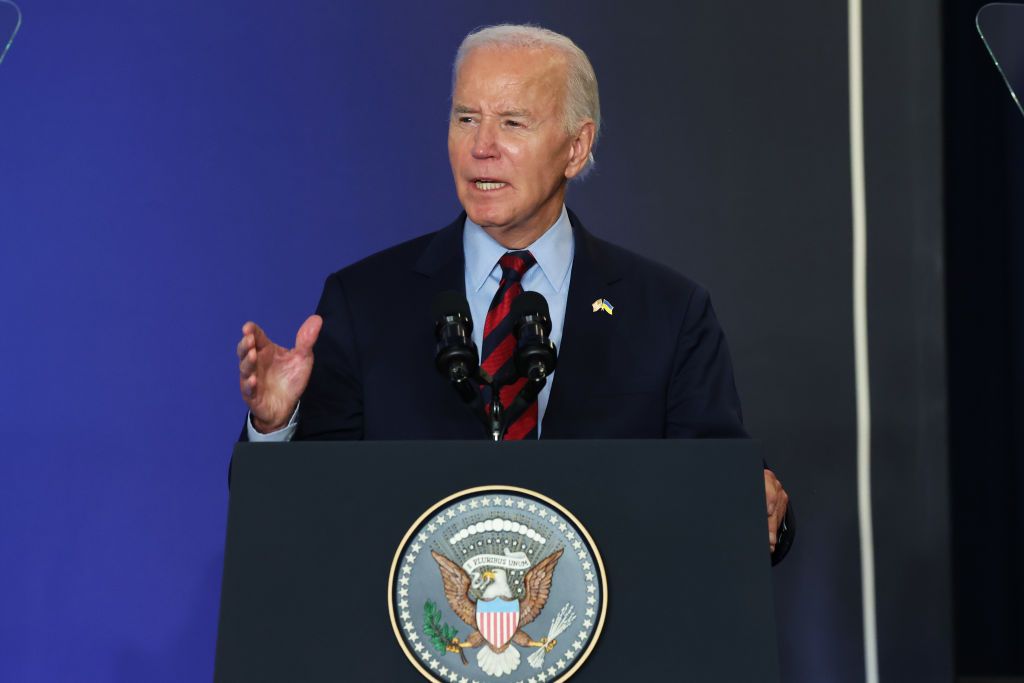U.S. President Joe Biden expressed concern over the arrival of North Korean troops in Russia to participate in the war against Ukraine. He stated that Kyiv should strike back if the troops enter Ukrainian territory. The Pentagon also voiced alarm at the situation, describing it as dire due to Moscow’s reliance on North Korean troops. NATO Secretary General Mark Rutte confirmed the presence of around 10,000 North Korean troops, with some already deployed in Russia’s Kursk Oblast. The entry of North Korean troops into the conflict comes as Russia intensifies its campaign in Ukraine’s eastern Donbas region, making significant advances.
Following Biden’s remarks, a Pentagon spokesperson, Major General Pat Ryder, revealed that a “relatively small number” of North Korean troops are already stationed in Russia’s Kursk Oblast. Defense Secretary Lloyd Austin had previously indicated that thousands more troops were expected to arrive in the region in the coming weeks. In response to the escalating situation, a South Korean delegation is set to visit Ukraine to share information on North Korea’s troops in Russia and discuss potential cooperation. This move highlights the growing international concern over the involvement of North Korean forces in the conflict.
The Ukrainian president, Volodymyr Zelensky, held a call with the South Korean president to discuss strengthening intelligence sharing and collaboration in response to North Korea’s involvement in the war. Both leaders agreed to intensify contacts at all levels and develop a strategy to counter the escalating situation. The decision to enhance intelligence sharing reflects the growing need for coordinated efforts to address the crisis and mitigate the impact of North Korean troops’ entry into the conflict. This development underscores the interconnected nature of global security and the necessity for joint responses to address emerging threats.
As tensions escalate in Ukraine with the involvement of North Korean troops, President Biden’s call for Kyiv to strike back in the event of an incursion by these forces reflects the seriousness of the situation. The presence of North Korean troops in Russia’s war against Ukraine adds a new dimension to the conflict and requires a coordinated response from the international community. The upcoming visit of a South Korean delegation to Ukraine signals a commitment to sharing information and collaborating on countermeasures. The need for increased intelligence sharing and cooperation is crucial in addressing the evolving dynamics of the conflict and safeguarding regional stability.
In the face of Russia’s advancing campaign in Ukraine and the involvement of North Korean troops, it is essential for world leaders to work together to address the escalating crisis. President Biden’s remarks and the Pentagon’s concerns underscore the gravity of the situation and the need for a united front in responding to the conflict. The upcoming visit of a South Korean delegation to Ukraine demonstrates a commitment to strengthening intelligence sharing and collaboration in the face of emerging threats. By enhancing coordination and developing a response strategy, countries can work towards de-escalating tensions and securing peace in the region.
In conclusion, the entry of North Korean troops into the conflict in Ukraine highlights the interconnected nature of global security and the importance of coordinated responses to emerging threats. President Biden’s call for Kyiv to strike back if the troops enter Ukrainian territory underscores the seriousness of the situation. The forthcoming visit of a South Korean delegation to Ukraine signals a commitment to intelligence sharing and collaboration in response to North Korea’s involvement in the war. By working together and developing a joint strategy, countries can address the evolving dynamics of the conflict and work towards de-escalation and stability in the region.


